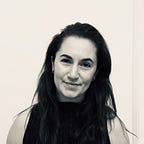12 Nuances
My hope for 2022 is that nuance in public discourse makes a comeback.
My father was raised Jewish and my mother was raised Baptist.
I was raised Baha’i.
I grew up mostly around Black and Asian families in the heart of San Francisco and was the minority in school as a racialized white kid.
At 12 years old a boy who had a crush on me painted swastikas all over the girls bathroom to get my attention, for which he got suspended. He was a freckly red-headed kid from a troubled family. He apologized. And later ended up in a halfway house. I often called to see how he was doing.
At that same age and school, I was told I’d go to hell because I wasn’t Christian. She was a closet lesbian, raised in a strict Chinese-American church. We, too, remained friends and she often reached out to me in college.
I regularly had philosophical conversations with homeless passengers on San Francisco’s MUNI trains as I spent 45 minutes to and from my large public school every day.
I also spent part of my youth raised in the Haight Ashbury.
I left my public arts high school at 16 and started community college.
